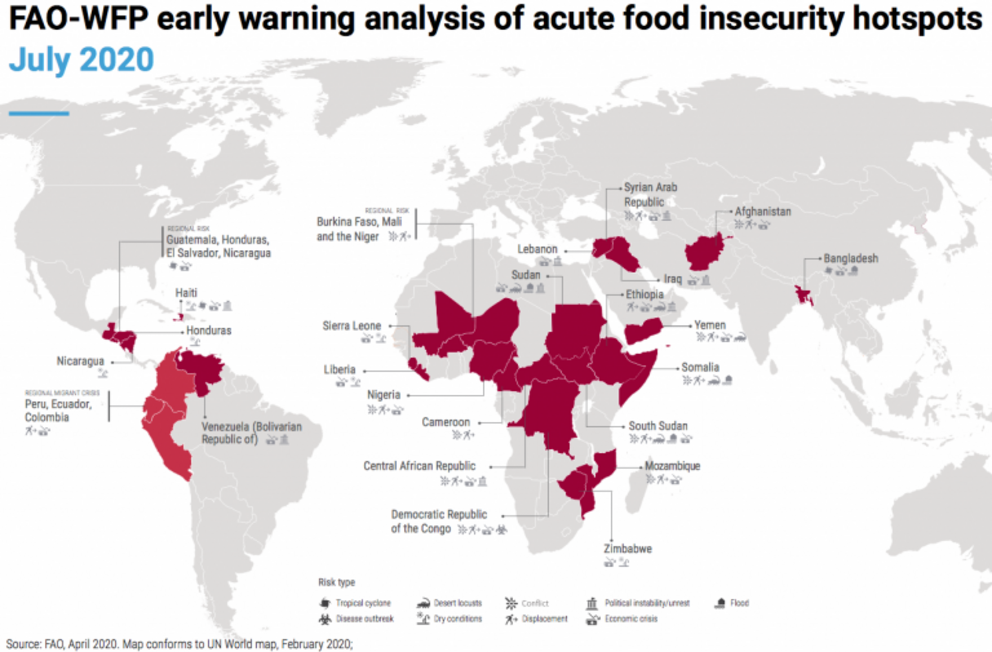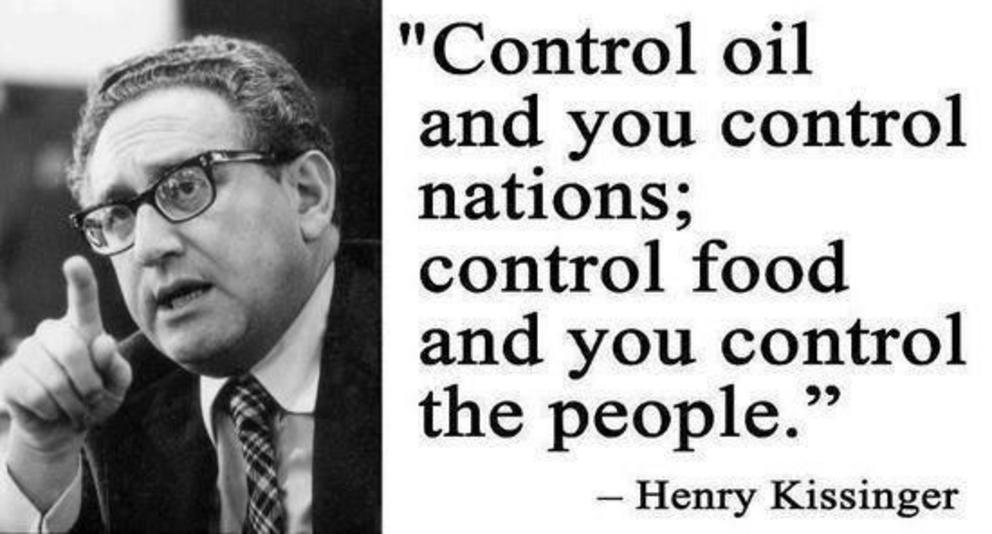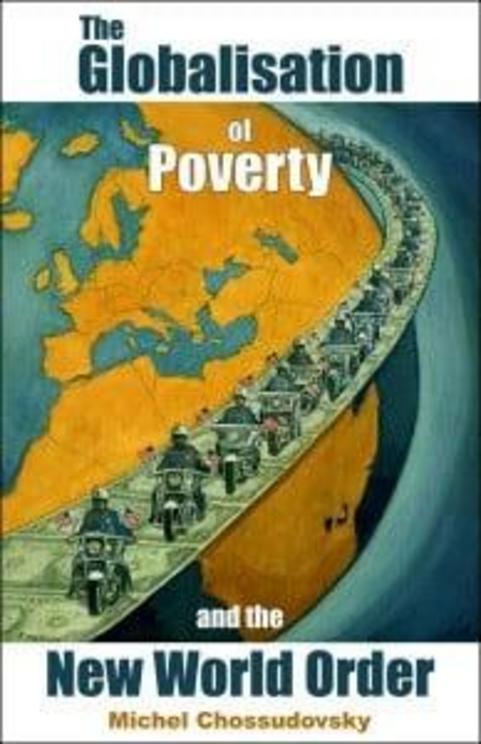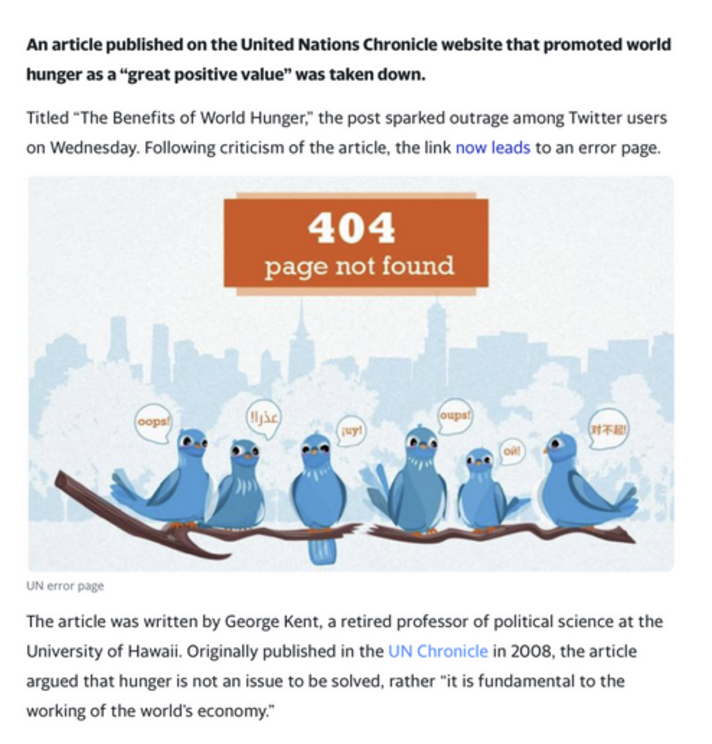COVID-19 Crisis: the unspoken objective of the WEF’s “Global Reset”
- is to “Eliminate the Poor”
By Prof Michel Chossudovsky and Prof. George Kent
Global Research, July 19, 2022
All Global Research articles can be read in 51 languages by activating the “Translate Website” drop down menu on the top banner of our home page (Desktop version).
To receive Global Research’s Daily Newsletter (selected articles), click here.
Follow us on Instagram and Twitter and subscribe to our Telegram Channel. Feel free to repost and share widely Global Research articles.
***
The COVID-19 Lockdown Triggers Worldwide Poverty
Poverty and chronic undernourishment is a pre-existing condition.
First, there is a long term historical process of macroeconomic policy reform under IMF-World Bank auspices which has contributed to depressing the standard living Worldwide in both the developing and the developed countries.
Second, these preexisting historical conditions of mass poverty have been exacerbated and aggravated by the imposition of the Covid lockdown.
With large sectors of the World population already well below the poverty line prior to the March 2020 Covid-19 lockdown, the recent hikes in the prices of basic food staples are devastating.
Millions of people around the World are unable to purchase food for their survival. And this is by no means limited to the “developing countries”.
According to the ILO (2020 report), over two billion people representing 62 percent of the global labor force, are employed in the informal economy. This population group is impoverished beyond description, with “millions of people facing a growing risk of hunger”.
Earnings of informal sector workers are estimated to have declined by 82 percent as a result of the covid lockdown, “with Africa and Latin America to face the largest decline.” (ILO data quoted by (FAO, p. 6).
The FAO’s July 2020 report points to 27 countries facing so-called “acute food insecurity”.

Global Famine
The World Food Program (WFP) (November 2021) report points to Global Famine and “Acute Hunger in 80 Countries”:
Global hunger continues to rise at an alarming rate: our latest estimates show that 282.7 million people across 80 countries are experiencing extreme levels of acute hunger. This represents an increase of around 110 percent compared to 2019 (when 135 million people in 58 countries were classified as acutely food insecure).
This “guesstimate” of 287.7 million cases of acute hunger borders on ridicule and “fake statistics”. The real numbers are much higher. Mass poverty is extensive Worldwide. The “estimate” is based on the following concept, which is put forth by the World Food Program (a UN body) as a humanitarian and compassionate criterion:
“one meal a day, the basic needed to survive – costing US$0.43 per person per day”. (WFP, p. 1)
Ask Bill Gates, who is actively buying up bankrupt family farms: “how much did your lunch cost”?

Combined with the spike in the price of oil (which is manipulated), the recent hikes in food prices are contributing in a very real sense to “eliminating the poor” through “starvation deaths” as well as destabilizing the nation-state.
In the words of Henry Kissinger:
“Control oil and you control nations; control food and you control the people.”
In this regard, Kissinger had intimated in the context of the 1974 “National Security Study Memorandum 200: Implications of Worldwide Population Growth for U.S. Security and Overseas Interests”, that the recurrence of famines could constitute a de facto instrument of population control. It’s part of the WEF’s eugenics agenda.
***
“The Benefits of World Hunger”
The text below was initially published by the United Nations Chronicle. It was subsequently withdrawn.
“…how many of us would sell our services so cheaply if it were not for the threat of hunger? When we sell our services cheaply, we enrich others, those who own the factories, the machines and the lands, and ultimately own the people who work for them. For those who depend on the availability of cheap labour, hunger is the foundation of their wealth.” (emphasis added)
Is this text a carefully formulated satire?
While the (satirical?) statements in this article published by the UN appear reprehensible, they reveal and document the Neoliberal consensus which consists in minimizing labor costs Worldwide.
Hunger is the source of enrichment by a social minority.
It’s the Globalization of Poverty.
Poverty and cheap labor are good for business.
And the Covid-19 Mandates contribute to spreading poverty worldwide.

— Michel Chossudovsky, Global Research, July 19, 2022
The Benefits of World Hunger
by Professor George Kent
***

Emphasis added
We sometimes talk about hunger in the world as if it were a scourge that all of us want to see abolished, viewing it as comparable with the plague or aids. But that naïve view prevents us from coming to grips with what causes and sustains hunger. Hunger has great positive value to many people. Indeed, it is fundamental to the working of the world’s economy. Hungry people are the most productive people, especially where there is a need for manual labour.
We in developed countries sometimes see poor people by the roadside holding up signs saying “Will Work for Food”. Actually, most people work for food. It is mainly because people need food to survive that they work so hard either in producing food for themselves in subsistence-level production, or by selling their services to others in exchange for money. How many of us would sell our services if it were not for the threat of hunger?
More importantly, how many of us would sell our services so cheaply if it were not for the threat of hunger? When we sell our services cheaply, we enrich others, those who own the factories, the machines and the lands, and ultimately own the people who work for them. For those who depend on the availability of cheap labour, hunger is the foundation of their wealth.
The conventional thinking is that hunger is caused by low-paying jobs. For example, an article reports on “Brazil’s ethanol slaves: 200,000 migrant sugar cutters who prop up renewable energy boom”.1 While it is true that hunger is caused by low-paying jobs, we need to understand that hunger at the same time causes low-paying jobs to be created.
Who would have established massive biofuel production operations in Brazil if they did not know there were thousands of hungry people desperate enough to take the awful jobs they would offer? Who would build any sort of factory if they did not know that many people would be available to take the jobs at low-pay rates?
Much of the hunger literature talks about how it is important to assure that people are well fed so that they can be more productive. That is nonsense.
No one works harder than hungry people. Yes, people who are well nourished have greater capacity for productive physical activity, but well-nourished people are far less willing to do that work.
The non-governmental organization Free the Slaves defines slaves as people who are not allowed to walk away from their jobs. It estimates that there are about 27 million slaves in the world,2 including those who are literally locked into workrooms and held as bonded labourers in South Asia. However, they do not include people who might be described as slaves to hunger, that is, those who are free to walk away from their jobs but have nothing better to go to. Maybe most people who work are slaves to hunger?
For those of us at the high end of the social ladder, ending hunger globally would be a disaster. If there were no hunger in the world, who would plow the fields? Who would harvest our vegetables? Who would work in the rendering plants? Who would clean our toilets? We would have to produce our own food and clean our own toilets. No wonder people at the high end are not rushing to solve the hunger problem. For many of us, hunger is not a problem, but an asset.
*
Note to readers: Please click the share buttons above or below. Follow us on Instagram and Twitter and subscribe to our Telegram Channel. Feel free to repost and share widely Global Research articles.
This article was taken down from the UN Website, the text above has been republished from IFZ.
George Kent is a professor in the Department of Political Science at the University of Hawaii.
The original source of this article is Global Research
Copyright © Prof Michel Chossudovsky and Prof. George Kent, Global Research, 2022

